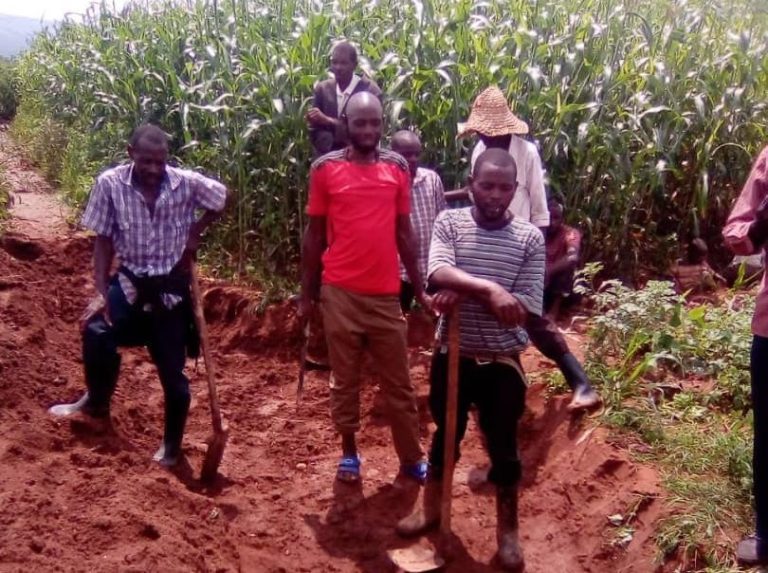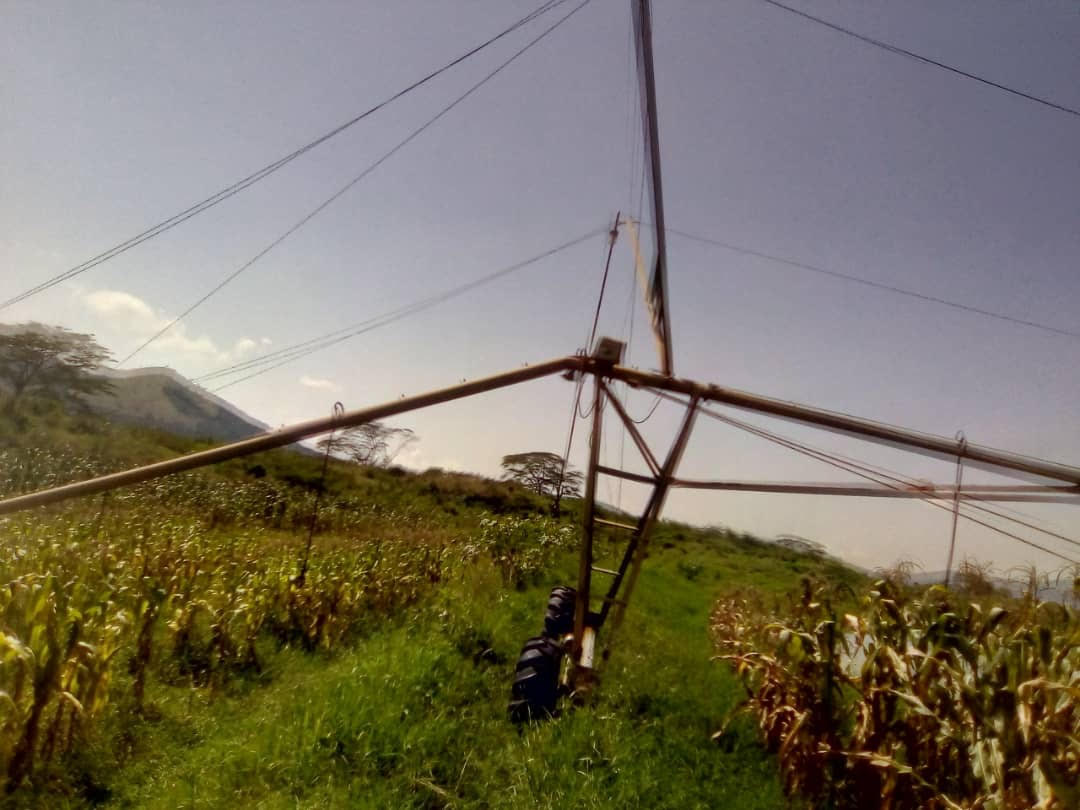
By John Mugisha;
As part of the upper headwaters of the Nile, Muvumba River located in Nyagatare district is one of the major watercourses both in size and economic importance in Rwanda.
Its upper course provides water for tea plantations in the high altitudes of North, while its lower course serves and facilitates irrigation of rice fields, maize, other crops, and provides fresh water to livestock farmers.

With financial support from the World Bank, in 2015 the Rwandan government constructed a USD 10 million dam and water reservoir purposely to help farmers to cope with the two main harsher dry seasons that vary between 3 and 5 months.
Today, the dam plays a vital role in the district, it is improving water, energy, food and nutrition security by harnessing water resources for irrigation, domestic, livestock use and hydropower generation, while ensuring sustainability of the resources and building resilience against climate change and variability.
The project currently provides clean water to over 300,000 people, and ensures 7,380 hectares of farmland is irrigated while the cattle keepers are able to graze and feed their livestock.
Muhire Ganza, a father of four and owner of two plots of farmland in Rukomo sector, is one of the beneficial’s reaping the rewards. he grows both rice and maize for home consumption and sells the rest at the market.
He says that the dam and irrigation system is changing lives in Nyagatare and it is a significant change. Last season, she ecstatically enjoyed a bumper harvest of seven out of which three tons of rice and maize respectively, thanks to the sprinkling irrigation system.
“The project has improved access to drinking and irrigation water, increased crop and livestock production as well as farmers’ income. With the profit from the sale of her produce, the extra income enabled her to purchase some cattle and pay school fees and medical insurance for her children,” She underlined.
Today, the project benefits the development of agriculture in sectors of Tabagwe, Gatunda, Karama, Rukomo, Nyagatare, Rwempasha, Musheri and Rwimiyaga sectors.
Besides Muhire, Vincent Masengesho a livestock farmer who is grateful says that before they used to feed cattle with unhygienic water from Umuyanja a small river between Rwanda and Uganda.
He explained that they used to walk a long distance in search of water and they’re not productive. However, he notes that he’s milk supply to milk collection has increased from 20 liters to 50 liters per day.
Before, farmers cultivating the upper hillside of Rukoma and other sectors would divert huge quantities of harvested rainwater that flowed into the catchment leaving other farmers and cattle keepers struggling downhill, which sparked disputes and arguments.
However, through mutual dialogue farmers have been able to resolve the problems on how to use the dam thanks to stakeholders like FAO.
Elyse Kamurenge the farm manager of Rurenge farmers Association appreciates FAO for coming just at the right time, because in 2016 the FAO needs assessment report revealed that lack of collaboration was the main driver causing disputes and arguments.
To avoid any further quarrels and clashes, FAO trained farmers, local community leaders in Nyagatare on how to work out a way to resolve any further future glitches by introducing an innovative water management solution.
Jean Bosco Manirafasha, from Karama sector, Gikagati Cell, Nyakibanda village as one of the apprentices, says cattle keepers clashed with other farmers because they felt that they had a right to free access to water, but then the training empowered farmers to resolve their problems. Eventually, it motivated a partnership framework among water users which has helped increase productivity as well as ensuring fair use of water.
“Through the training everyone got to know each other, learnt to listen, we learnt how to communicate better, how to develop trust among ourselves” He said adding “Before different groups of farmers looked out only for themselves but today they stand together” He added.
Besides that, farmers were trained on record keeping, transparency and sharing of financial information, which is also helping them to negotiate for advance payments for their crops and livestock with buyers.
Damascene Ngabo an agronomist from Kiyombe sector, Gataba cell who advises the farmers on a day to day basis says to sustain the farmers, cooperatives and Muvumba irrigation scheme, farmers should be introduced to innovative farming programs such as agriculture mechanization.
“Farmers should be trained on the application of appropriate fertilizers, effective chemical usage such as pesticides and herbicides in order to increase crop production. For irrigation farming to be sustainable, different stakeholders should intervene, infrastructure should be built for transportation of produce to the markets on time,” He points out.
Ngabo believes the introduction of improving farming practices like irrigation have led to an increase in productivity and says that farmers in Nyagatare district have gained skills in business management hence widening their access to markets countrywide by signing contracts with buyers in districts like Kigali.
COVID-19 effect on Nyagatare farmers
Like in so many countries around the world, COVID-19 has changed the situation in Rwanda. Farmers had to divert the money they would have invested in agricultural activities into helping their families meet their more immediate needs.
Esperance Dusabimana from Gikagati sector, one of the affected farmersin rice growingsays that early stages of COVID-19 lockdown due to mobility disruptions set in place affected smaller farmers.
“Both transportation and reaching customers was a challenge as we didn’t have permanent customers. We usually went to Kigali City to look for clients, but that time it was not possible. Even the clients we had, during that time, left us because we couldn’t get the supplies to them.” She explained.
Dusabimana further claims that even though the lockdown has been uplifted, they’re yet to stabilize financially. She says they don’t have enough capital to reinvest in farming activities.
Although the establishment of Muvumba irrigation scheme is an endeavor to improve the welfare of the people socially, economically and ensure food security has continued to remain a pressing issue by some households in some areas of the Nyagatare district.
